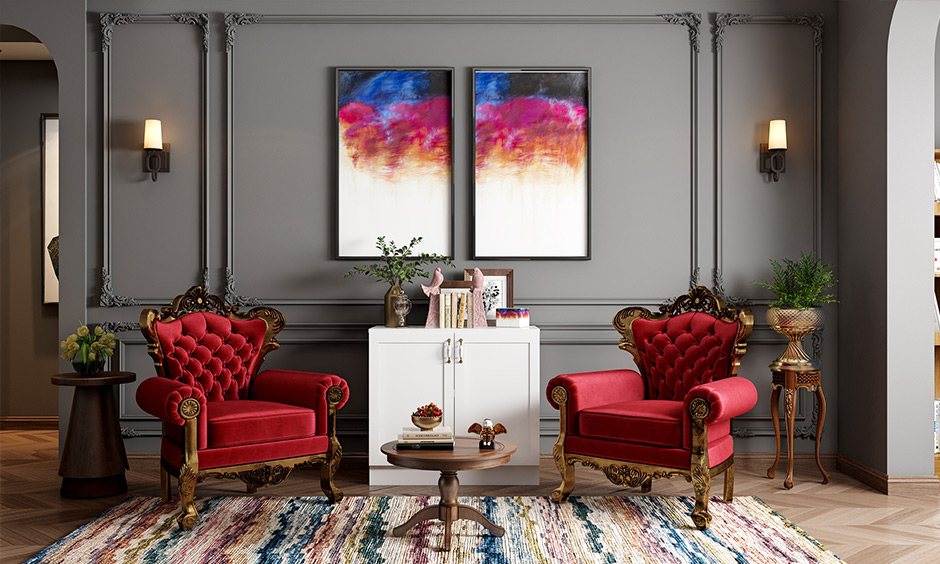There are many ways to arrange the furniture in your house, and the best arrangement will depend on the size and layout of your apartment, as well as your personal style and needs.
Here are a few general tips to consider when arranging furniture in your living room and bedroom.
Consider the flow of the room
When arranging furniture, you need to consider how people will move through the space.
You want to create a natural flow that allows people to easily walk from one area to another.
Use the “rule of three”
Grouping furniture in sets of three (such as a trio of chairs or a coffee table with two side tables) can create a balanced and visually appealing arrangement, chaktty advised.
Multifunctional spaces
As homes have become smaller in recent years, there has been a trend towards creating multifunctional spaces that can serve multiple purposes, such as a home office that doubles as a guest room.
Personalization
Homeowners are looking to make their homes unique and reflective of their personal style, by incorporating their own art, furniture, and decor.
Create conversation areas
You need to consider arranging your furniture to create a few distinct conversation areas, rather than one large open space. This will make the room feel more welcoming and encourage socializing.
Define the focal point
Every room should have a focal point, such as a fireplace or a piece of artwork.
Arrange your furniture to draw attention to this feature and make it the centerpiece of the room.
Explore the corners in your rooms
Don’t forget to utilize the corners of a room when arranging furniture.
A corner can be a great place for a reading chair or a small accent table.
Leave enough space between your furniture
Make sure to leave enough space between pieces of furniture and around the edges of the room for people to easily move around.
According to Techpally home, a good rule of thumb is to leave at least 18 inches of space between pieces of furniture.
Experiment with different arrangements
Don’t be afraid to try out different furniture arrangements until you find one that works best for your space.
Play around with different configurations and see what feels most comfortable and visually appealing.
How to manage space in living room?
Space management is very important, whether you have a small room or a large room.
Here are a few tips to help you manage the space in your living room, and these tips are also applicable to your bedroom.
Make a floor plan
Before you start moving furniture around, it’s a good idea to create a floor plan.
Measure the dimensions of your room and the furniture you want to include, and use graph paper or a computer program to plan out the layout.
This will help you visualize how everything will fit and ensure that you have enough space for circulation.
Choose multi-purpose furniture
Look for furniture that serves multiple purposes, such as a coffee table with storage or a daybed that can be used for seating or sleeping.
Smart furniture fit in very much for this, and it will help you make the most of the space you have.
Consider the scale of your furniture
Make sure the size of your furniture is appropriate for the size of the room, businesspally advised.
If you have a small living room, opt for smaller pieces that won’t overpower the space.
Use vertical space
Don’t forget to utilize the walls and ceiling in your living room.
Shelves, wall-mounted cabinets, and hanging baskets can all help you make use of vertical space and keep the floor clutter-free.
Use area rugs
Area rugs can help define different areas within an open floor plan and make a room feel more cohesive.
Choose a rug that’s large enough to anchor the furniture in the room, but small enough to leave enough space for circulation.
Evaluate the importance of your belongings
If you’re short on space, it’s important to be selective about what you keep in your living room.
Consider getting rid of items that you don’t use or love, and consider storing rarely-used items in a storage unit or basement.
Remember, it’s okay to have a little bit of empty space in your living room.
Don’t feel like you have to fill every inch of the room with furniture and accessories.
Sometimes, a little bit of negative space can help a room feel more spacious and open.



